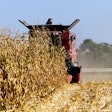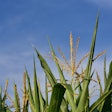
At this year's Farm Progress Show, Secretary of Agriculture Tom Vilsack announced a significant USDA initiative aimed at boosting domestic fertilizer production. The move, which involves a $35 million investment for seven projects across seven states, is part of the broader Biden-Harris Administration's Investing in America agenda.
The funds, sourced from the Commodity Credit Corporation, are allocated through the Fertilizer Production Expansion Program (FPEP). This program is designed to help independent business owners modernize equipment, adopt new technologies, and establish production facilities. Secretary Vilsack highlighted that these grants are intended to "increase domestic fertilizer production and strengthen our supply chain," noting that the projects will also generate employment opportunities in rural communities and support local economies.
To date, the USDA's investment in the FPEP has reached $286.6 million, funding 64 projects in 32 states and creating 768 new jobs. These initiatives are projected to augment domestic fertilizer production by over 5.6 million tons.
Among the beneficiaries of the latest round of funding is Dramm Corp. in Wisconsin, which will receive a $776,000 grant. The company plans to enhance its production of liquid fish fertilizer, used by both organic and traditional farmers. This process not only increases production capacity but also utilizes fish offal from commercial and sport fisheries, helping to reduce waste and environmental impact.
Another significant recipient is AdvanSix in Virginia, which will use its nearly $12 million grant to expand its ammonium sulfate production facility. This expansion will increase the company's production capacity by 195,000 tons annually, allowing it to serve over 36,000 agricultural producers across the East Coast and Midwest.
Additional grants will benefit projects in California, Iowa, New York, Oregon, and Tennessee, reflecting a nationwide push to enhance fertilizer production capabilities.
The FPEP initiative was created in response to the sharp increase in fertilizer prices, which more than doubled between 2021 and 2022 due to factors such as the Ukraine conflict and limited competition in the fertilizer industry. The Administration has pledged up to $900 million to support the program, aiming to fortify supply chains, stimulate economic opportunities, and foster climate-smart agricultural practices.
This funding is part of the Administration's comprehensive strategy to enhance agricultural production capacities, address global food security challenges, promote fair competition, and respond effectively to the climate crisis.
















